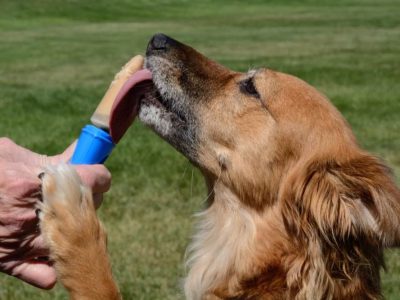
Your dog’s digestive health is a crucial aspect of their overall well-being. A well-functioning digestive system ensures that your furry friend can absorb nutrients effectively, maintain a healthy weight, and live a happy, active life. One way to support your dog’s digestive health is through the use of supplements like Anal Gland Supplement for Dogs, which can help with specific issues such as anal gland problems. Let’s delve into the various components that contribute to your dog’s digestive health.
The Importance of a Balanced Diet
A balanced diet is the cornerstone of digestive health for dogs. High-quality dog food should provide all the essential nutrients, including proteins, fats, carbohydrates, vitamins, and minerals. Always read the label to ensure that the food you’re providing meets your dog’s nutritional needs.
However, it’s not just about what’s in the food; it’s also about how much and when it’s given. Overfeeding can lead to obesity, which puts additional strain on the digestive system. Likewise, irregular feeding times can disrupt your dog’s digestive rhythm. Stick to a consistent feeding schedule and consult your vet about the right portion sizes for your dog.
Recognising Digestive Issues
Digestive problems in dogs can manifest in various ways, including vomiting, diarrhoea, constipation, and excessive gas. While occasional issues might not be a cause for concern, persistent symptoms should be checked by a vet. Early intervention can prevent minor problems from becoming major health issues.
In addition to physical symptoms, behavioural changes can also indicate digestive issues. If your dog is less active, avoids food, or shows signs of discomfort, it might be time for a vet visit. A thorough examination and possibly some tests will help diagnose the issue and guide the treatment plan.
Supplements and Probiotics
Supplements can play a role in maintaining your dog’s digestive health. Probiotics, in particular, have gained attention for their ability to support a healthy gut flora. These beneficial bacteria aid in digestion and help maintain a balanced microbial environment in the intestines.
While supplements can be beneficial, they should not replace a balanced diet or medical treatment. Always consult your vet before adding any new supplements to your dog’s regimen. This is especially important if your dog has existing health issues or is currently on medication.
Exercise and Mental Well-being
Physical activity is not just good for your dog’s muscles and heart; it also promotes a healthy digestive system. Exercise helps move food through the digestive tract more efficiently, reducing the likelihood of constipation. A good rule of thumb is at least 30 minutes of exercise per day, although the exact amount can vary depending on your dog’s age, breed, and health condition.
Mental well-being is often overlooked but is equally important. Stress and anxiety can wreak havoc on your dog’s digestive system, leading to symptoms like diarrhoea or constipation. Providing a stable environment, regular exercise, and mental stimulation can go a long way in keeping your dog both happy and healthy.











